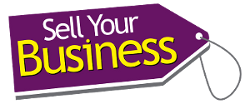
Before Engaging, find the best Solicitor ever
 Find the best solicitor you can to help you sell your business and guide you through the business sale process. If you already have a good solicitor, consider yourself lucky. Completing a business sale is a job that requires exposure to all functions of business as well as understanding the legal terms and law. Choosing a solicitor should be at the top of your list when you are committed to sell a business.
Find the best solicitor you can to help you sell your business and guide you through the business sale process. If you already have a good solicitor, consider yourself lucky. Completing a business sale is a job that requires exposure to all functions of business as well as understanding the legal terms and law. Choosing a solicitor should be at the top of your list when you are committed to sell a business.
Not all businesses would require a solicitor to sell, though. If you are selling a website, you can easily find a buyer online and complete the transaction through a form of escrow. However, having a solicitor go into bat for you can help a business’s valuation and increase the multiple. Poor solicitors can wreck the sale altogether. We would hate to see that happen to you so here are a few tips that you may consider before signing up with a solicitor that go hand-in-hand with our pack that helps you beauty parade all your professional advisors.
Competency and Experience
You should be very careful while choosing a solicitor. Your solicitor will not only draw the Memorandum of Information, Heads of Terms, and other sale documents, but also help you during the negotiations. Unless you own a famous brand, the price your business sale fetches would largely depend upon how your solicitor presents your business in the Memorandum. It is, therefore, extremely important that your business sale solicitor has lots of experience in selling businesses and is fully competent in preparing all documents related to the business sale. Your solicitor should have a proven track record in selling businesses similar to yours, and should preferably be recommended by someone you know.
Understanding of Your Business and Industry
Every industry and business has some quirky requirements which the solicitor must be aware of before drafting the sale documents especially if those quirky requirements affects your business, and in turn, your business’s valuation. The solicitor is there to safeguard your business’ purchase price and make sure that the buyer cannot claim back against any indemnities or warranties from you in the future.
Fee Structure
Solicitor fees and commissions can vary widely. Some of the solicitors that you come across might have hidden charges in their fee structures, which might surprise you at a later stage. If you don’t want to be caught unaware and pay heavily, you should thrash out the details of the fees and other charges with your solicitor before signing up and look out for % fees and financial penalties upon contract termination.
Terms of Engagement
The agreement you sign with the solicitor will document each and every detail, including the rights and responsibilities of both parties, i.e. you and your solicitor. Insert the appropriate timelines, penalty clauses, the payment terms and all other details meticulously. Selling your business is a complex matter. Don’t increase its complexity and difficulty by hiring the wrong solicitor. Spend time review the sale document again and again until all parties are ready to sign it!
Interest in Your Business Sale
A solicitor may have a great record and reputation, but from your point of view, it is the interest and involvement in selling your business that should matter the most. If you sign up with a solicitor who specialises in selling much bigger businesses than yours, that solicitor might not take your job very seriously. Apart from reputation, you should also determine the level of interest that your solicitor is displaying for your particular transaction, and hire the best solicitor who is fully committed to helping you selling your business.
Customer Services
Your business sale solicitors should not be so busy that you have to wait for days before meeting with them. They should have a culture of customer services and should put you at their top priority. They should have a reputation for meeting deadlines, as they would be preparing all the paperwork and should not keep you waiting on that.
Expert Window Dresser
When selling a business, a lot depends upon window dressing in order to earn the maximum amount of money from your business sale. Your solicitor should be fully aware of this vital aspect and should pay proper attention to all beauty parade elements. Selling a business is about delivering the right sales pitch. The basic AIDA approach (Attention, Interest, Detail, and Action) should be followed. The strengths of the business should be highlighted while the weaknesses are window dressed. Only an expert business sale advisor can point you in the right direction.
Kim Brown, Co-Founder of Business Wand, helps business owners navigate their way through the start to finish process of selling a business. Her specialty is to help owners cut costs and increase profits prior to sale. To understand how you can sell your business quickly for the highest sales price, purchase the book, “How To Sell A Business: The #1 guide to maximising your company value and achieving a quick business sale”



 5 Key Due Diligence Requests
5 Key Due Diligence Requests




 Visualise your bountiful business exit, it’s worth it. Einstein considered imagination to be more important than intellect. Before doing an actual experiment, he would visualise the experiment in his mind, thinking about each and every detail and the whole sequence. As a result, he was prepared for the minor or major problems that he could encounter during the experiment. Establishing your business takes a lot of effort. It is only fair for you to consider a bountiful exit when selling your running business. However, like everything else, a business sale also requires a proper strategy. If you are well prepared, your business sale will conclude smoothly, with maximum returns for your hard work. The best way to be prepared for a business sale is to visualise successful business exit.
Visualise your bountiful business exit, it’s worth it. Einstein considered imagination to be more important than intellect. Before doing an actual experiment, he would visualise the experiment in his mind, thinking about each and every detail and the whole sequence. As a result, he was prepared for the minor or major problems that he could encounter during the experiment. Establishing your business takes a lot of effort. It is only fair for you to consider a bountiful exit when selling your running business. However, like everything else, a business sale also requires a proper strategy. If you are well prepared, your business sale will conclude smoothly, with maximum returns for your hard work. The best way to be prepared for a business sale is to visualise successful business exit.

 Starting a new business all over again? What about your existing business? There can be many reasons for selling a business. It may be that you have realised that you are in the wrong line of business, and would like to switch industries. Or, you might have realised that your business is not performing as expected, and you would rather sell your business while it’s still making some profits. After all, over 50% of business start ups go under in the first five years. And, if you are lucky, you have a business that’s roaringly successful, and you would like to cash in the good will and start up a new business.
Starting a new business all over again? What about your existing business? There can be many reasons for selling a business. It may be that you have realised that you are in the wrong line of business, and would like to switch industries. Or, you might have realised that your business is not performing as expected, and you would rather sell your business while it’s still making some profits. After all, over 50% of business start ups go under in the first five years. And, if you are lucky, you have a business that’s roaringly successful, and you would like to cash in the good will and start up a new business.